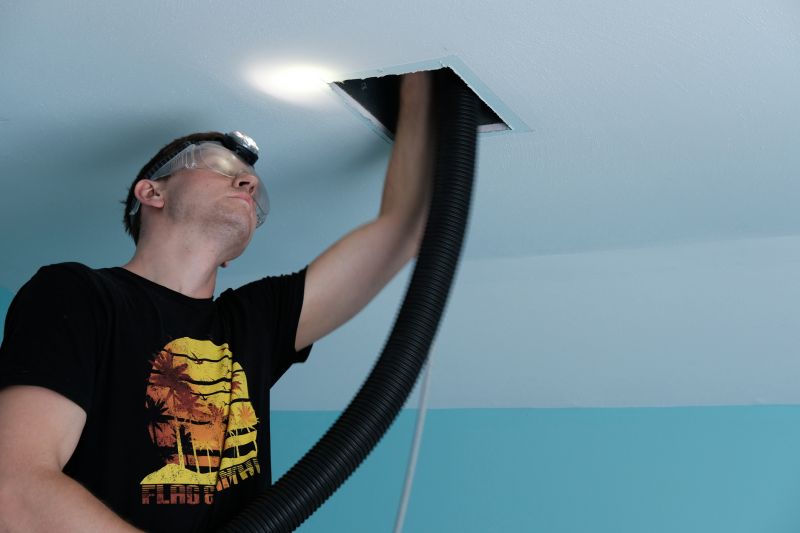Ultimate Selection of Duct Pressure Testing Devices for Experts
Find high-quality tools tailored for precise duct pressure measurement to enhance maintenance and troubleshooting processes.
 Duct pressure testing is a critical process in assessing the integrity and efficiency of HVAC duct systems. Proper testing helps identify leaks, blockages, or weaknesses that could impact airflow and energy efficiency. For professionals and DIY enthusiasts alike, having the right tools is essential to perform accurate and safe pressure tests. These products range from simple handheld devices to comprehensive testing kits, each designed to suit different levels of complexity and precision requirements.
Duct pressure testing is a critical process in assessing the integrity and efficiency of HVAC duct systems. Proper testing helps identify leaks, blockages, or weaknesses that could impact airflow and energy efficiency. For professionals and DIY enthusiasts alike, having the right tools is essential to perform accurate and safe pressure tests. These products range from simple handheld devices to comprehensive testing kits, each designed to suit different levels of complexity and precision requirements.
Top Overall Option
Comprehensive Duct Pressure Testing Kit
This all-in-one testing kit includes a high-precision digital pressure gauge, versatile adapters, and a durable test fan, making it suitable for both professional and DIY applications. Its intuitive interface and reliable readings facilitate accurate assessment of duct system integrity, helping users identify leaks or blockages efficiently.
Types of Products For Duct Pressure Testings
Digital Pressure Gauges
Electronic gauges provide precise readings with digital displays, often featuring data logging and Bluetooth connectivity for detailed analysis.
Analog Pressure Gauges
Traditional dial gauges offer reliable, straightforward measurement without the need for batteries or digital calibration.
Test Fans
Portable fans designed to create controlled pressure in duct systems, aiding in leak detection and airflow testing.
Pressure Adapters and Connectors
Specialized fittings that connect testing devices to various duct sizes and shapes for secure and effective testing.
Leak Detection Smoke Devices
Tools that generate non-toxic smoke to visualize leaks when combined with pressure testing procedures.
Wireless Pressure Sensors
Sensors that transmit pressure data wirelessly, enabling remote monitoring and real-time analysis.
Data Loggers
Devices that record pressure data over time for detailed analysis and troubleshooting.
Portable Vacuum Pumps
Used to create negative pressure within duct systems for testing and leak detection.
Pressure Relief Valves
Safety devices that prevent over-pressurization during testing procedures.
Calibration Kits
Tools to ensure pressure gauges and testing devices are accurate before use.
Flow Meters
Instruments that measure airflow rates in conjunction with pressure testing for comprehensive analysis.
Manometers
Simple devices for measuring pressure differences in duct systems, often used in basic testing scenarios.
Popular Choices
Offers easy-to-read digital measurements with wireless data transfer for detailed analysis.
Compact fan designed for quick setup and effective pressure testing in various duct sizes.
Includes gauges, adapters, and accessories to perform comprehensive duct pressure assessments.
Enables remote monitoring of duct pressure with real-time alerts and data logging.
A simple, portable device for quick pressure measurements in duct systems.
Measures pressure differences across filters or duct sections with high accuracy.
Creates visual smoke for leak detection when combined with pressure testing methods.
Creates negative pressure to assist in leak detection and airflow testing.
Measures airflow rates in duct systems, complementing pressure testing procedures.
Ensures accuracy of testing instruments before use in critical assessments.
A typical duct pressure testing setup often includes pressure gauges, test fans, and specialized adapters that connect to existing ductwork. Some systems incorporate digital readouts for easy interpretation of results, while others rely on analog gauges. The choice of equipment depends on the scope of testing, the size of the duct system, and the desired accuracy. Proper calibration and understanding of how to operate these tools are vital for obtaining reliable data.
Advancements in technology have introduced more sophisticated testing instruments, including wireless sensors and data logging capabilities. These innovations enable continuous monitoring and detailed analysis over time, which can be particularly useful for large commercial installations. Regardless of the specific product, safety precautions such as ensuring proper sealing and avoiding over-pressurization are important to prevent damage or inaccurate readings.
Whether for routine maintenance, troubleshooting, or quality assurance, selecting the appropriate products for duct pressure testing can streamline the process and improve results. From basic pressure gauges to advanced digital testing kits, the market offers a variety of options tailored to different needs. Understanding the features and specifications of each product type helps users make informed decisions and achieve effective testing outcomes.
Key Buying Considerations
- Compatibility with duct sizes and shapes to ensure secure connections during testing.
- Measurement accuracy and resolution suitable for the specific testing requirements.
- Ease of use and clarity of digital displays or analog gauges for quick interpretation.
- Durability and build quality to withstand frequent use in various environments.
- Portability and weight, especially for on-site or DIY applications.
- Battery life and power options for electronic devices to ensure reliable operation.
- Additional features such as data logging, Bluetooth connectivity, or remote monitoring capabilities.
- Availability of calibration tools to maintain measurement accuracy over time.
- Safety features like pressure relief valves to prevent over-pressurization.
- Compatibility with existing duct systems and ease of setup.
- Price point relative to features and intended use case.
- Customer support and warranty options for troubleshooting and repairs.
- Availability of accessories such as adapters, connectors, and leak detection aids.
- Brand reputation and user reviews to gauge reliability and performance.
- Compliance with industry standards or certifications for testing equipment.
